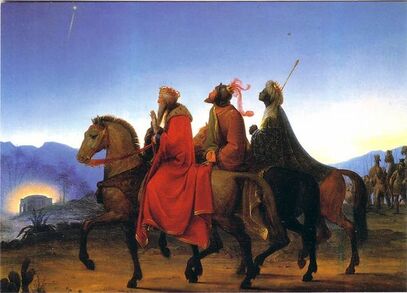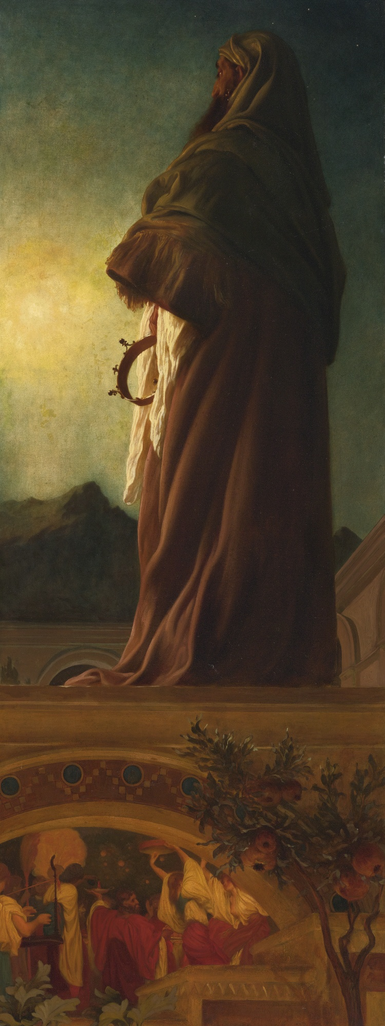|
At 9:00 a.m., songs of light and transformation greet you on this Epiphany Sunday morning. Cantor Lucas Jackson and bassist Peter Strening join us in the chancel.
At 11:00 a.m., the organ begins worship with a chorale fantasia on the German hymn "Wie schön leuchtet der Morgenstern" (How lovely shines the Morningstar) by Baroque composer Dietrich Buxtehude. The Chancel Choir offers "Lighting the Way" by Will Todd. The text, also written by the composer, expresses the wonder of God's light in all creation and our role in sharing it with the world. The organ concludes worship with a cheerful setting of the Epiphany carol "In Thee Is Gladness" by Paul Manz.
0 Comments
With the guidance of the Light of Epiphany, we follow our own road home in this New Year of 2022.
At the 9:00 a.m. "eclectic" service, we join in singing Carols of Light on this Epiphany Sunday along with a few songs from the road home. Bassist Peter Strening, Staff Singer Blair Carpenter and I lead the music this Sunday morning. Three carols of the Epiphany in inspired creative settings will be prayerfully offered at the 11:00 a.m. service. From the organ, the German 16th century chorale "Wie schön leuchtet der Morgenstern" (How lovely shines the morning star) begins worship in a revered sectional setting by Baroque composer Dietrich Buxtehude. If you listen carefully, you may even hear the star in the opening measures...:) J.S. Bach's bold and energetic setting of the new year chorale "In dir ist freude" (In thee is gladness) brings the service to a joyous close. The Chancel Choir offers "What Star Is This?" arranged by David Ashley White. Based on the 15th century tune "Puer Nobis" by Michael Praetorius, the Charles Coffin text relates the journey of the Magi to our own quest for the inner light of God.  By Leopold Kupelwieser (1796-1862) - Diocese de Rouen, Public Domain, https://commons.wikimedia.org/w/index.php?curid=33909092 By Leopold Kupelwieser (1796-1862) - Diocese de Rouen, Public Domain, https://commons.wikimedia.org/w/index.php?curid=33909092 On this Second Sunday of Christmas, we also observe the Epiphany, which will be a mere twelve hours away on January 6. Music and words depicting the Magi, their guiding star: the Light — the Story of Christmas — will usher in these first services of the new year. The Epiphany hymn "How Lovely Shines the Morning Star" receives a Neo-Baroque treatment by early twentieth century composer Hugo Distler. Recalling the imitative and quai-fugal stylings of composers such as Johann Pachelbel and Dietrich Buxtehude, this short plaintive setting ends with a restatement of the original chorale reimagined by Distler. A "Noël" by George Frederick McKay echoes the sounds of Christmas with its inference of a yuletide church bell peal. Soprano Blair Carpenter and flutist Aaron McGrew will join me on Swiss composer Frank Martin's "Trois Chants de Noel" (Three Christmas Songs). Composed in 1947, the work encompasses three brief songs poetically describing the visitation of Jesus in the manger by the Magi ("The Gifts"), the collective original manger scene ("A Picture of Christmas"), and the arrival of the shepherds ("The Shepherds"). Musically, Martin works often from a medieval perspective though employing Middle Eastern tonalities in the opening Magi section. Along with the incessant flute obligato lines throughout, these songs take on an artful otherworldly quality.  "The Star of Bethlehem", 1862 painting by Frederic Leighton Source: Wikimedia Commons "The Star of Bethlehem", 1862 painting by Frederic Leighton Source: Wikimedia Commons The Feast of the Epiphany falls on Sunday this liturgical year, a day sometimes referred to as Three Kings Day. Christians around the world have commemorated the visitation of the Magi to the Christ Child on January 6 for centuries. But the Epiphany season is much more than this. It is the season of light, the Light of Christ revealed to the world, at first, via a guiding star. Throughout this portion of the liturgical year, ending on the Transfiguration on March 3, we will hear many references to light through the organ and choral works and hymnody. This Sunday morning, two 20th century settings of German Baroque chorales by Helmut Walcha will be offered: Wie schön leuchtet der Morgenstern (O Morning Star, how clear and bright) and O Jesu Christe, wahres Licht (O Christ, our true and only light). Walcha was a blind organist who composed in what can be a called a "Neo-Baroque" style: employing common Baroque composition techniques such as counterpoint and exposing the chorale melody in the texture (a cantus firmus) with contemporary harmonies and a modern aesthetic. A noted scholar on the works of J.S. Bach, Walcha recorded the master's complete catalogue twice: once in mono, followed by a recording in stereo. It is fitting then to also present Bach's setting of In dir ist Freude (In Thee Is Gladness), a hymn of hope for the new year, declaring Jesus as the "sunshine of my heart." At the 11:00 service, the Chancel Choir will sing Paul Halley's arrangement of Infinite Light, an Epiphany anthem based on a traditional English text and melody. At 6:00, Bobby and cantor Blair Carpenter will continue our Epiphany observance with beautiful musical offerings of light and love. |
Details
|



 RSS Feed
RSS Feed